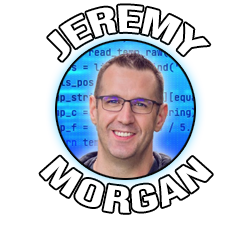Don't be the Insecure Interviewer
Last Update: Sep 17, 2021
I wrote a book! Check out A Quick Guide to Coding with AI.
Become a super programmer!
Learn how to use Generative AI coding tools as a force multiplier for your career.
On Twitter, a friend of mine shared a Twitter thread about interviews. While it wasn’t explicitly related to tech interviews, my ears perked up because I’ve seen it. So many times. Here’s what he said in its entirety:
My favorite thing about LinkedIn and Twitter posts where people ask “What’s your favorite question to ask in a job interview, and why?” is seeing people earnestly share some of the worst job interview questions I’ve ever seen in my life
Like 90% of the time I see these, I’m convinced you could source not worse interview questions if you just straight up asked people “What’s the worst interview question you could ask in a job interview?” It’s a glitch in the matrix
The problem as I see it: People fall too in love with the power dynamic of being an interviewer—you’re holding something someone wants over them, in a way—and thus get too cute with it. Like the best copywriting, interview questions should prioritize clarity over cleverness.
IM ALMOST DONE
If a candidate’s struggling w/ a question there’s at least a 50% chance it was just a bad question, not a “gotcha” moment cuz of how Clever you are at interviewing
You’re allowed to say “sorry that was a [dumb/loaded/confusing] question I asked” and move it along
I agree with this so much. Instead of building my own long Twitter thread, I wrote this blog post.
If you don’t want to read this whole post, here’s the takeaway:
If you’re interviewing people, nobody cares how smart YOU are. Nobody will admire you for tripping up candidates. Stop doing this for the sake of your organization, your reputation, and your career. - Me
My Experience with Interviews
I’ve been on both sides of the table when it comes to tech interviews. I’ve been the interviewer far more than the person being interviewed. That’s mostly because I’ve been in lead or manager positions for a good chunk of my career. However, I will never forget how it feels to be in the hot seat. It’s not fun.
I’ve been interviewed for jobs and got an offer email on the drive home, and I’ve been turned down just as fast for a variety of reasons. I don’t hold angst towards those who rejected me. Sometimes it’s just not a good fit.
But there were a few interview experiences where I felt I had been wronged. I didn’t get a fair shot, and I felt the company missed out. Later in my career, I decided to use these experiences as an example of what not to do once I was on the other side of the table.
Here’s one example.
My interviewer is an idiot
One time long ago, I interviewed for a software engineer position. It was pretty standard. Some trivia questions, a few whiteboard problems, the usual stuff. I felt things went well. I wasn’t stumped on anything, and I thought I offered some reasonable solutions. Cool.
In the last part of the interview, I met with the head of the team. After a quick chat, I felt like he hated me. I ignored that impression because I didn’t know him. He didn’t know me. I was probably overthinking things.
He gave me a problem in C# and told me to go to his computer and write a console application to solve it. I had fifteen minutes. Cool, let’s do it. I got to his computer, and he had a split keyboard with his Visual Studio hotkeys remapped. Immediately I noticed none of the shortcuts worked. It was clunky, and it was weird.
I solved the problem within the given amount of time. But it didn’t look good. I probably looked like I’d never used a keyboard before due to his wacky setup. But I solved the problem.
I got a call from the recruiter later:
So they liked you as a person and think you’re great. But the lead says he’ll pass. He says you haven’t a lot of experience with “hand coding”. He thinks you’re too reliant on WYSIWG programming.
At that point, all I could do was laugh. Hand coding is my jam. The two years before that, I was coding Python in Vim every day. And this guy thinks I can only drag and drop WPF forms? Ok cool. A friend of mine who worked there (and a former coworker) called me and asked how it went, and he was dumbfounded. “Was he serious? Didn’t we have to ask you to stop using Notepad++ for C# on our team a few years ago?
The point of this story: Some people are idiots and/or insecure. They’re so consumed with making themselves look smart and making you look stupid they’ll do anything to disqualify you from the job. And that is what fulfills them.
Don’t be that person. Don’t be the insecure interviewer.
The Implications of the Insecure interviewer
Experiences like this made me realize as a lead/manager that behaving in this manner has some severe repercussions. Turning the interview into a showdown or some measuring contest has no positive results. You may think you’re showing everyone how smart you are. In reality, not so much.
You are:
- Denying someone who is likely talented their shot
- Making your organization look bad
- Likely not fooling anyone
Here’s how this plays out. You’re the insecure person interviewing people, and you’ve outsmarted them all. You feel ten feet tall because you interviewed fifteen people, and not one of them was as smart as you. They were all idiots. Of course! That’s because the company was so fortunate to find the unicorn genius that you are. You can’t be replaced.
In reality, many of your coworkers can see right through it. They know you’re trying to trip people up. You’re trying to capitalize on their anxiety. You’re trying to find that one thing they don’t know everything about. You are trying to make them look stupid, so you look smart. As a result, your manager/coworkers won’t respect you. They’ll put up with you.
That person you just destroyed in the interview? They’ll tell other people. And if they are on to your game, they’ll let everyone know what kind of jerks work there. You will make your entire organization look bad. In a time when the market shifts, and it’s a developer’s market (like we’re in right now) you’ll get fewer candidates applying. Period.
My Approach
I decided long ago to take a different approach to interviewing. I would start with a conversation. I try to make them as comfortable as possible to get an accurate view of how they work. Find out how a person solves problems. Sure we can do some whiteboard stuff. I can throw out some tech questions. I’m more interested in how they answer rather than whether they get the answer correct. Obscure trivia knowledge? I don’t care so I won’t ask.
And I want to see how they communicate, how they interact. How they think.
And if they’re smarter than me, that’s a good thing. In fact:
Hiring a person smarter than you or better than you at something is not a threat to your job.
It shows good leadership. It shows you’re more focused on the goals rather than personal competitions. Also, who brought in this brilliant, talented person? You did.
I fought fellow team members at various organizations over this. Nearly every panel interview had that one person whose sole job in the interview was to outsmart the person applying for a job. At all costs. I had to battle to keep them in check.
As I look back now, most of those people I’m still in contact with are not flourishing in their careers. They’re probably still unhappy in their job, gatekeeping people every day. Some aren’t even in the business anymore, as far as I can tell.
Gatekeeping is for the weak. Don’t be the insecure interviewer.
–Jeremy






